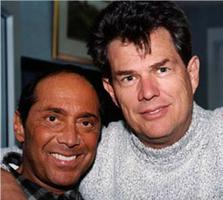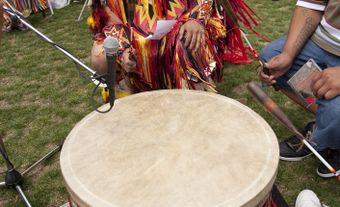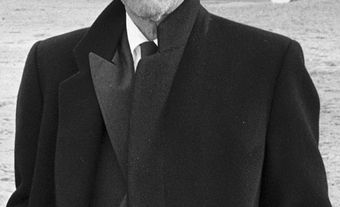
Songwriters and songwriting (English Canada), 1954-2000s
Songwriters and songwriting (English Canada), 1954-2000s. The period in popular music from 1954 to the early 2000s was largely characterized by a significant increase in the number of contrasting styles, and by a shift to the majority of songwriters mostly performing their own material. However, some songwriters first active before 1955 remained so into later decades.
Vocal Pop and Folk Revival, 1954-67
Vocal groups in the 1950s-60s included the Four Lads, the Crew-Cuts, and the Diamonds (all pop, rhythm and blues, and/or gospel-oriented); plus the Travellers (who were urban folk-oriented). Members of these groups only occasionally wrote songs (though they generally arranged their own performances), and nearly all of their best-known songs were written by or adapted from US songwriters or, in the case of the Travellers, traditional songs. However, Rudy Maugeri and Pat Barrett of the Crew-Cuts wrote their 1954 song "Crazy 'Bout Ya Baby," and Bernard Toorish of the Four Lads contributed Frankie Laine's 1954 hit "Rain, Rain, Rain" (on which the group also sang). Canadian-born songwriter Oscar Brand wrote the Travellers' Canadian 1963 hit "Something to Sing About." The group also later recorded songs by the 1960s' generation of Canadian singer-songwriters (see "Singer-Songwriters Who Emerged in the 1960s-70s," below), including 1961-74 group member Ray Woodley.
The singer Juliette also performed songs by Canadian songwriters. Bobby Gimby, of the Happy Gang and a former music director for Juliette, wrote the 1967 patriotic, bilingual song "Ca-Na-Da" (a major national hit by the Young Canada Singers). Richard Morris's and Dolores Claman's similar, Ontario-oriented song "A Place to Stand (Ontari-ari-ari-o)" also debuted in 1967. Similar songs often became popular through sheet music and/or oral transmission over several decades, such as Wade Hemsworth's "The Black Fly Song" (1949), Alan Mills's "I Know an Old Lady Who Swallowed a Fly" (1951), and Don Wright's "Proudly We Praise" (1966).
Rock 'n' Roll and Pop-Rock, 1957-74
Paul Anka wrote numerous songs that were best-known in internationally successful versions by other performers, such as Buddy Holly's "It Doesn't Matter Anymore," the theme for "The Tonight Show" (which originated in a song called "Toot Sweet"), Tom Jones's "She's a Lady," and Frank Sinatra's 1969 recording and Elvis Presley's 1973 live version of "My Way" (adapted from a French song). Anka also recorded nearly all of his several hundred compositions himself, including international hits spanning from "Diana" (No. 1, 1957) to "Lonely Boy," "Put Your Head on My Shoulder," "Puppy Love," and the 1974 hit duet "You're Having My Baby." (US singer Donny Osmond also had a hit with "Puppy Love" in 1971.)
The first Canadian rock 'n' roll group to write and record a major international hit was the Beau-Marks, with "Clap Your Hands" (1960). Another early rocker was Ronnie Hawkins, who first released recordings in 1959. He normally performed other songwriters' material (often US rhythm and blues or rock 'n' roll), but also wrote or co-wrote songs, such as "Hey Boba Lou" (with band member Robbie Robertson and Jacqueline Magill).
Although pop singer Bobby Curtola wrote quite a few songs himself, most of his best-known hits (including "Fortune Teller") were written by Dyer and Basil Hurdon. Galt MacDermot wrote the music for the 1967 rock musical Hair. Adam Mitchell and Skip Prokop wrote songs for the band The Paupers (in which they also performed); Bob Burgess and Jurgen Peter similarly wrote songs such as "1-2-5" for the Haunted (in which they also performed, from 1966); and Domenic Troiano (who earlier played with Hawkins) emerged as an important guitarist/composer (such as with Mandala).
Singer-Songwriters Who Emerged in the 1960s-70s
The 1960s and 1970s saw a generation of successful Canadian singer-songwriters, many of whom had international hits or hits in versions of their songs recorded by other artists. These included Bonnie Dobson (the anti-nuclear anthem "Morning Dew," 1961, covered by Lulu in 1968); Ian Tyson (the 1963 song "Four Strong Winds"); Buffy Sainte-Marie (the 1964 protest song "Universal Soldier," covered by Scottish pop star Donovan in 1965); Joni Mitchell (" Both Sides Now," 1967, first widely known in Judy Collins's version and recorded by Mitchell in 1969); Quebecois poet/chansonnier Gilles Vigneault (" Mon Pays," 1967, adapted into Patsy Gallant's 1976 disco hit "From New York to L.A."); Leonard Cohen (" Suzanne," 1968); Gene MacLellan (" Snowbird," recorded by Anne Murray); Neil Young ("After the Gold Rush," 1970); and Gordon Lightfoot ("Sundown," 1974). These performer-songwriters generally all made lyrical references to Canada, although some of them (especially Sainte-Marie, Mitchell, and Young) spent long portions of their careers in the US.
Gordon Lightfoot became an international figure without permanently moving to the US, and the development in the 1970s of a significant Canadian recording industry, and of Canadian content broadcast regulations, made it possible for younger performers also to have successful careers based in Canada. These included Bruce Cockburn ("Going to the Country," 1971); Murray McLauchlan ("Farmer's Song," 1972); Valdy ("Rock and Roll Song, 1972"); Stompin' Tom Connors ("The Good Old Hockey Game," 1973); Stan Rogers ("Fogarty's Cove," 1976); and Kate and Anna McGarrigle (Kate's 1974 "Heart Like a Wheel," recorded by Linda Ronstadt). Other folk- or country-oriented singer-songwriters included John Allan Cameron, Allister MacGillivray, Gary Fjellgaard, Dallas Harms, and "polka king" Walter Ostanek.
Pop singer Anne Murray recorded dozens of songs written by the 1960s-70s' generation of Canadian singer-songwriters, including Mitchell, MacLellan ("Snowbird," "Put Your Hand in the Hand," and a number of others), Lightfoot ("Cotton Jenny"), Cockburn ("Musical Friends" and "One Day I Walk"), and MacGillivray (" Song for the Mira"). Catherine McKinnon recorded similar Canadian songs. Ken Tobias had a performing career, but also wrote for other performers, including the Bells ("Stay Awhile," 1971) and Anne Murray.
Ray Griff was successful in writing songs recorded by notable US country stars such as Johnny Horton, Jim Reeves, Ray Price, Mel Tillis, Dolly Parton, and George Jones. Country singer Carroll Baker had a major national hit in 1970 with George Petralia's "Mem'ries of Home."
Band-Based Pop-Rock Songwriters Who Emerged in the 1960s-70s
In the 1960s-70s, many significant Canadian songwriters became known as performing members of pop-rock groups, the earliest of which were often based in the US. These included Robbie Robertson and other members of The Band; Mars Bonfire (Dennis Edmonton) and John Kay of Steppenwolf; David Clayton-Thomas of Blood, Sweat & Tears; Zal Yanovsky of the Lovin' Spoonful; and Denny Doherty of the Mamas and the Papas. US folk singer Joan Baez had a hit in 1971 with Robertson's "The Night They Drove Old Dixie Down."
Of Canadian-based bands with Canadian and/or international successes, important songwriters who became known in the late 1960s or very early 1970s included Terry Jacks of the Poppy Family ("Which Way You Goin', Billy?," 1969); Burton Cummings and Randy Bachman of the Guess Who ("American Woman," 1970); Bachman also in Bachman-Turner Overdrive, or BTO ("Takin' Care of Business," 1973); Skip Prokop (formerly of The Paupers); Pierre Senecal of Mashmakhan (the 1970 international hit "As Years Go By"); Paul Hoffert, Bob McBride, Ralph Cole, and Howard Shore of Lighthouse ("One Fine Morning," 1970); Roly Greenaway and Kelly Jay in Crowbar ("Oh, What a Feeling," 1971); Frank Marino of Mahogany Rush; Bill Henderson of Chilliwack; Mike McKenna of Luke & the Apostles, the Ugly Ducklings, and McKenna Mendelson Mainline; Joe Mendelson of McKenna Mendelson Mainline; Rich Dodson of The Stampeders ("Sweet City Woman," 1971); and Les Emmerson of the Staccatos and the Five Man Electrical Band ("Signs," 1971).
Major Canadian rock songwriters who entered the field in the 1970s included Myles Goodwyn of April Wine; Nick Gilder and James McCulloch of Sweeney Todd ("Roxy Roller," 1975); Geddy Lee, Alex Lifeson, and Neil Peart of Rush ("2112," 1976; the band's lyrics were nearly always by Peart); Ramon McGuire of Trooper (often co-writing with Michael Smith); Cameron Hawkins, Nash the Slash, and Martin Deller of the progressive rock band FM; Jim Crichton and Michael Sadler of Saga; Kim Mitchell and Pye Dubois of Max Webster ("Paradise Skies," 1979, lyrics by Dubois, who also occasionally worked with Rush); and Rik Emmett, Michael Levine, and Gil Moore of Triumph (Emmett's 1979 "Lay It on the Line"). Rock songwriters emerging as important figures at the end of the 1970s included Tom Cochrane of Red Rider ("White Hot," 1979, co-composed with Ken Greer); Carole Pope and Kevan Staples of Rough Trade ("High School Confidential," 1980); and Art Bergmann (of the Young Canadians).
Additional Pop-Rock and Other Songwriters Who Emerged in the 1960s-70s
Successful solo artist-composers included Andy Kim (who co-wrote the US Archies' 1969 No. 1 hit "Sugar, Sugar" and had a moderately successful Canadian solo career, such as with "Rock Me Gently" (1974), and later under the name Baron Longfellow); Ian Thomas ("Painted Ladies," 1973); Terry Jacks ("Seasons in the Sun," 1974); Burton Cummings ("Stand Tall," 1976); Dan Hill ("Sometimes When We Touch," 1977, as well as songs written for Céline Dion, George Benson, Jeffrey Osborne, and Tina Turner); Keith Hampshire; Nick Gilder ("Hot Child in the City," 1978, co-written with James McCulloch); and Gino Vannelli ("I Just Wanna Stop," 1978, co-written with his brother Ross).
Other Canadian songwriters who first became known in the 1970s included blues-rock performers Colin Linden and David Wilcox ("That Hypnotizin' Boogie," 1977) and composer-keyboardists Frank Mills (formerly of the Bells), Hagood Hardy, and David Foster. Foster later wrote or co-wrote pop songs for Céline Dion and Roch Voisine, as well as for US performers Chicago; Peter Cetera (who co-wrote with Foster "Glory of Love," 1986); and Whitney Houston, and for highly successful movie soundtracks such as the 1985 hit "St Elmo's Fire (Man in Motion)."
Shirley Eikhard worked in country, pop, and jazz-influenced styles for her own recordings, but was more successful as a songwriter for other singers, such as Anne Murray; Bonnie Raitt (the Grammy award-winning "Something to Talk About," 1991); Rita Coolidge; and Cher. Marc Jordan also had a performing career, but was more successful as a songwriter for other artists, both non-Canadians (such as Rod Stewart, Cher, and the Manhattan Transfer) and Canadians (such as his wife Amy Sky, Amanda Marshall, and 2004 Canadian Idol winner Kalan Porter). Similarly, Eddie Schwartz had Canadian chart successes in the early 1980s, but was also successful writing hit songs for Pat Benatar ("Hit Me with Your Best Shot," 1980); the Doobie Brothers ("The Doctor," 1989); Paul Carrack ("Don't Shed a Tear," 1987); and fellow Canadian Lawrence (Larry) Gowan (with whom Schwartz co-wrote "All the Lovers in the World," 1990).
Male Songwriters Who Emerged in the 1980s-2000s
The most successful Canadian rock singer-songwriter of the 1980s and early 1990s was Bryan Adams. In the late 1970s Adams replaced Nick Gilder in Sweeney Todd, then in his 1980s songwriting often collaborated with Jim Vallance, writing such major international hits as "Summer of '69," "Heaven," and "Run to You". Later Adams co-composed with non-Canadians such as Mutt Lange (later Shania Twain's co-writer).
Other pop-rock male songwriters (band or solo) to emerge in the 1980s included Paul Dean and Mike Reno of Loverboy ("Turn Me Loose," 1980); Bob Rock and Paul Hyde of Payola$ ("Eyes of a Stranger," 1982) and Rock & Hyde; Corey Hart (the international hit "Sunglasses at Night," 1983); Lawrence Gowan; Alfie Zappacosta (formerly of the band Surrender); Stephen Fearing; Robbie Robertson; and Daniel Lanois. Tom Cochrane continued with Red Rider until leaving for a solo career (eg, with the 1991 international hit "Life is a Highway"). Christopher Ward wrote or co-wrote (sometimes with American rhythm and blues musician David Tyson, of the Manhattans) many songs for rock singer Alannah Myles (such as the international hit "Black Velvet," 1989-90).
Other male Canadian songwriters active into the 1990s included Jim Cuddy and Greg Keelor of the roots-rock band Blue Rodeo ("Try," 1987); Barney Bentall (& the Legendary Hearts); blues-rock performers Jeff Healey and Colin James; Mark Holmes and the other members of Platinum Blonde; Moe Berg of the Pursuit of Happiness; Neil Osborne and the other members of 54-40; Derry Grehan of Honeymoon Suite; Brad Roberts of the Crash Test Dummies (the international hit "Mmm Mmm Mmm Mmm," 1993); and Gordon Downie and the other members of the Tragically Hip ("Courage," 1992). They also included Steven Page and Ed Robertson of the Barenaked Ladies (the international hit "One Week," 1998); David Usher and the other members of Moist; Matthew Good and Dave Genn of the Matthew Good Band; Dave Bidini and Martin Tielli of Rheostatics; Jagori and Christian Tanna of I Mother Earth; Raine Maida of Our Lady Peace (often co-writing with Arnold Lanni, formerly of Sheriff and Frozen Ghost); Jeff Martin and the other members of the Tea Party; Chad Kroeger and the other members of Nickelback; and Win Butler of Arcade Fire (often co-composing with Josh Deu).
Folk, country, and other singer-songwriters included Jimmy Rankin of the Rankin Family ("Fare Thee Well Love"); Ben Mink (formerly of FM; he collaborated as a songwriter with k.d. lang and with Rush's Geddy Lee); George Fox; Rufus Wainwright; Ron Sexsmith; Hawksley Workman; and Sam Roberts.
Urban/rap songwriter-performers have included Maestro Fresh Wes (Wes Williams), Kardinall Offishall (Jason Harrow), and K-Os (Kheaven Brereton).
Female Songwriters Who Emerged in the 1980s-2000s
Pop-rock female songwriters (band or solo) included Lorraine Segato and other members of the Parachute Club ("Rise Up," 1983); Jane Siberry ("Mimi on the Beach," 1984); Rita MacNeil ("Flying on Your Own," 1987, also recorded by Anne Murray); k.d. lang ("Big Boned Gal," 1989, co-written with Ben Mink); Sass Jordan (co-composer of Mariah Carey's version of "Honey"); Jann Arden ("Insensitive," 1994); Amanda Marshall; Sarah McLachlan (co-composing with Pierre Marchand), Loreena McKennitt ("The Mummer's Dance," 1997); and Susan Aglukark. Others include Alanis Morissette; Avril Lavigne; Chantal Kreviazuk; Nelly Furtado; singer-songwriters Sarah Harmer, Kathleen Edwards, and Martha Wainwright; and country singer-songwriters Terri Clark and Shania Twain (who co-wrote most of her international hits with producer and husband "Mutt" Lange).
Associations, Awards, and Halls of Fame
The substantial development of a Canadian songwriting community after the 1960s sprang partly from the growth of a stronger Canadian music industry, which included the Canadian Recording Industry Association, the Canadian Music Publishers Association, the Songwriters Association of Canada, the Canadian Country Music Association, la Société professionnelle des auteurs et des compositeurs du Québec, and various additional regional associations for musicians and songwriters. It also relates to performing rights organizations (especially SOCAN), content regulations for broadcasting, the growth of music television (eg MuchMusic), and the activities of the Canadian Academy of Recording Arts and Sciences (CARAS).
Awards and other recognitions have included CARAS's Juno Awards (starting in 1971, but with roots to 1964); the Canadian Music Hall of Fame (from 1978); and the Canadian Songwriters Hall of Fame (from 2003). Foreign awards won by Canadian songwriters range from US Grammys to Britain's Ivor Novello award. Among Canadians whose works are listed in the US Grammy Hall of Fame are Joni Mitchell, David Clayton-Thomas, Alex Kramer, Galt MacDermot, Mars Bonfire, Bob Nolan, Ruth Lowe, Hank Snow, Paul Anka, Alfred Bryan, and Shelton Brooks.
See also: Songwriters and Songwriting (English Canada) Before 1921; Songwriters and Songwriting (English Canada) 1921-1954; Folk Music; Country Music; Rock 'n' Roll and Rock Music, Patriotic Songs; Pop Music, Anglo-Canadian.

 Share on Facebook
Share on Facebook Share on X
Share on X Share by Email
Share by Email Share on Google Classroom
Share on Google Classroom


